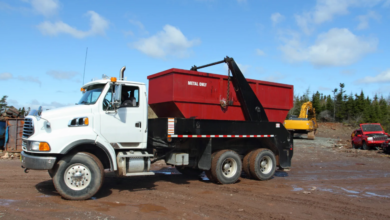How Scrap Metal Recycling Keeps Hazardous Waste Out of Landfills

Improper disposal of scrap metals poses serious risks to the environment and human health. Heavy metals and toxic coatings can leach into soil and groundwater when dumped in landfills, contributing to contamination and long-term ecological damage. Engaging in professional scrap metal recycling in Rome provides a responsible solution by ensuring metals are diverted from landfills, reclaimed, and reused in the production cycle. This process not only reduces pollution but also supports sustainability and resource conservation.
Preventing Hazardous Contamination
Metals such as lead, mercury, and cadmium are common in certain products and can become hazardous if not disposed of correctly. When these materials enter landfills, they break down slowly, releasing harmful substances into the surrounding environment. Recycling eliminates this risk by redirecting metals to facilities where they are safely processed and reused.
Beyond heavy metals, coatings and treatments on steel or aluminum can release toxins when left to degrade in landfills. Recycling facilities remove these coatings and prepare metals for reuse, ensuring that harmful byproducts don’t pollute air, soil, or water supplies. Properly managing waste metals is more than a regulatory responsibility; it’s a proactive measure to safeguard community health and preserve natural ecosystems.
Differentiating Between Scrap Types
An important part of safe recycling involves understanding the different categories of metals. Each type has unique properties and disposal requirements. Understanding the differences between ferrous and non-ferrous scrap metal demonstrates how proper sorting improves recycling efficiency while enhancing environmental safety.
Ferrous metals, like steel and iron, are magnetic and widely recycled for construction and manufacturing. Non-ferrous metals, such as copper, aluminum, and brass, hold higher market value and require careful handling due to their frequent use in electrical systems and consumer goods.
Accurate sorting ensures materials are processed efficiently, reduces cross-contamination, and maximizes the recovery of valuable resources. By differentiating scrap types, recycling facilities minimize hazardous waste risks while optimizing reuse opportunities.
See also: How to Improve Inventory Management for Small Businesses
Supporting the Circular Economy
Scrap metal recycling is a cornerstone of the circular economy, which prioritizes reuse over disposal. Recycling metals reduces the need for mining, conserves energy, and lowers greenhouse gas emissions. For businesses and individuals, this means less reliance on raw material extraction and more sustainable resource cycles.
Exploring how scrap metal recycling supports the circular economy demonstrates its broad economic and environmental benefits. By feeding recycled metals back into production, industries decrease waste, reduce landfill use, and minimize ecological disruption. This process ensures that materials remain in circulation for longer periods, supporting both environmental stewardship and economic growth. For businesses, aligning with circular economy practices also improves brand reputation, showing customers and stakeholders a commitment to responsible operations.
Reducing Landfill Strain and Extending Capacity
Landfills across the country face capacity challenges, and metals contribute significantly to bulk waste volume. Recycling removes metals from this stream, extending landfill lifespans and reducing the costs of landfill management.
By diverting scrap metal, recycling also creates space for waste that cannot yet be repurposed. This strategic reduction in landfill strain allows municipalities to allocate resources more effectively while reducing environmental oversight risks. The more metals that are recycled, the less burden is placed on communities to build new landfill sites, protecting local land use and minimizing environmental disruption.
Conclusion
Scrap metal recycling is a critical practice for keeping hazardous waste out of landfills and maintaining ecological balance. By focusing on safe disposal, differentiating scrap types, and supporting the circular economy, recycling ensures metals are responsibly managed and reused. With professional scrap metal recycling, communities and businesses contribute to cleaner environments, healthier populations, and a more sustainable future where resources are conserved rather than wasted.







